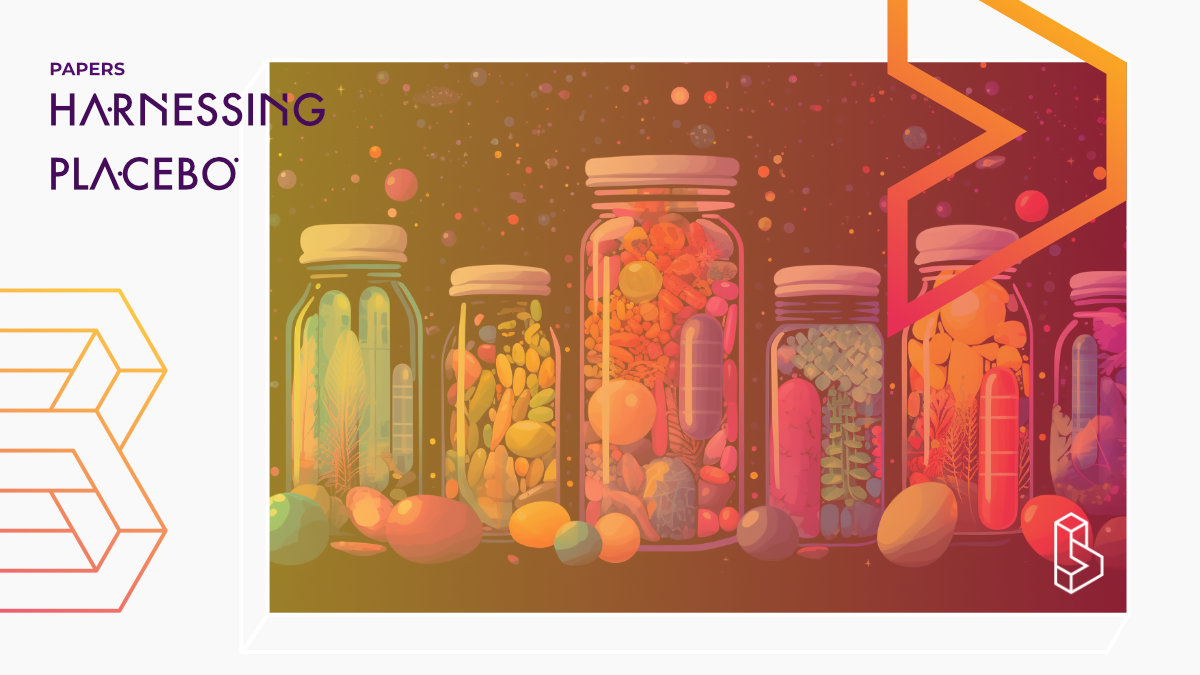This review/hypothesis article (2023) proposes a new framework inspired by the field of psychedelic science, specifically focusing on the concept of “set and setting” to understand better and utilize the placebo effect in clinical settings. The authors argue that randomized controlled trials (RCTs), while helpful in evaluating the efficacy of drugs, can overlook the significance of contextual and personal factors that interact with and shape drug effects, and suggest an integrative approach that acknowledges the synergy between drug and non-drug factors for improved patient care.
Abstract of Harnessing Placebo
“The randomized controlled trial (RCT) research design assumes that a drug’s “specific” effect can be isolated, added, and subtracted from the “nonspecific” effect of context and person. While RCTs are helpful in assessing the added benefit of a novel drug, they tend to obscure the curative potential of extra-pharmacological variables, known as “the placebo effect.” Ample empirical evidence suggests that person/context-dependent physical, social, and cultural variables not only add to, but also shape drug effects, making them worth harnessing for patient benefits. Nevertheless, utilizing placebo effects in medicine is challenging due to conceptual and normative obstacles. In this article, we propose a new framework inspired by the field of psychedelic science and its employment of the “set and setting” concept. This framework acknowledges that drug and nondrug factors have an interactive and synergistic relationship. From it, we suggest ways to reintegrate nondrug variables into the biomedical toolbox, to ethically harness the placebo effect for improved clinical care.”
Authors: Chloé Pronovost-Morgan, Ido Hartogsohn & Johannes G. Ramaekers
Summary of Harnessing Placebo
Despite a tumultuous history, the placebo effect has been recognized as a legitimate biopsychosocial phenomenon. However, translating these ideas into practice has mainly been unfruitful due to the placebo effect’s contradictory theoretical background.
This article will explore the paradoxical nature of the placebo effect and will debunk assumptions that have hindered its ethical use. It will also provide recommendations for reintegrating placebo effects into the biomedical toolbox.
Find this paper
Harnessing placebo: Lessons from psychedelic science
https://doi.org/10.1177/02698811231182602
Open Access | Google Scholar | Backup | 🕊
Cite this paper (APA)
Pronovost-Morgan, C., Hartogsohn, I., & Ramaekers, J. G. (2019). Harnessing placebo: Lessons from psychedelic science. Journal of Psychopharmacology, 02698811231182602.
Study details
Authors
Authors associated with this publication with profiles on Blossom
Johannes RamaekersJohannes Ramaekers is a professor at Maastricht University his work focuses on behavioral toxicology of drugs and combines methods from psychopharmacology, forensic toxicology and neuroscience to determine drug-induced changes in human performance. Some of this research is done with DMT.

